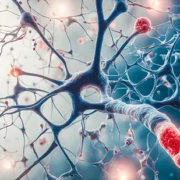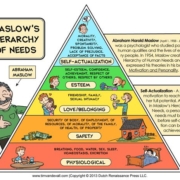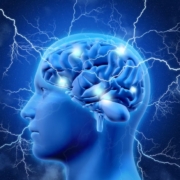Why we do the things we do and take the actions we take? What truly motivates us?
We could say that it’s our drive to survive, which translates contemporarily into a need to make money, or could also say it is a drive to accomplish things. If we look deeper, all those actions are on the surface in the state of “doingness” when our true motivations and drives come from our state of being, our “beingness.” We have different levels, we have our somatic level where we have our bodies and we get a sense of literally feeling something such as when we feel through our five senses, and in a related manner, we feel from our hearts. Our heart is a physical organ that’s also tied to our brain which is a physical organ where we have thought processes and we take actions based on our thoughts.
Yet, there is still a much deeper level where we can find the origins of our true motivations. I’ve heard a variety of theories about this. One I learned many years back was the Be-Do-Have model, which basically says our mindset, our “being,’ multiplied what we do, will result in what we have. I jumped right on this and the felt it was a great solution and approach. Later I realized that all the definitions of being, behaviors and beliefs and such were centered on our physical state of being our physical world, where our goals are to attain something physical, to accomplish something in order to gain some tangible asset, generally referring to money. That state of being is still superficial, it’s a cognitive state of our mind (body). When we keep digging we find our real state of being is deeper, it’s a state of consciousness.
Let’s back up and ask what creates those thoughts that we define ourselves by, and present an image of who we think we are, or who we expect others to perceive us as. When we go deeper into the realm of true motivation, we find another level which is consciousness. Consciousness is a state of awareness, a state of sensing. We feel with our body, we think with our mind, and we sense through our existence of/as consciousness. We exist in consciousness. That is who we are at our deepest level. Perhaps we could call it spirit, or soul. I choose consciousness. I experienced consciousness several times, pure consciousness outside of the realm of my body, an experience that is difficult to accurately express. What I found was the greatest power in the universe is Love. In that state of consciousness it is an experience, not a feeling, because there’s no body, it’s an experience of pureness and awareness, with no ego, no fears, no doubts, just a warming sense of–love. Unconditional, unabridged, pure love.
I came to understand much later, only recently in fact, that that is the true motivation for everything we do. When I reached my first levels of awareness in my personal development, I was exposed to the concept of people pleasing, which I immediately rejected, saying no, I’m not a people pleaser, I’m a doing guy I get things done and I don’t care what other people think. Well over 10 years after that, only recently in 2024, did I realize that was in fact exactly what I was doing and all of my actions and everything I did was trying to please other people to show that I was worthy of love and affection. This goes right back to my childhood and my father and mother and my desire to please them.
I began to contemplate this in relation to my dogs, who, to me, are part of my immediate family. They’re motivated by wanting to please me because they love me. It’s more than just pack behavior and being the alpha dog, that’s part of it, but that goes back to the same equivalent level of us striving to make money or build something to survive such as a house or growing food. We have basic needs physical needs, which we have to fulfill. Moving beyond those, all the other actions we take are actions motivated by our desire to be loved. To express love and to experience love in return. There will be people who scoff at this approach and say we are cognitive creatures that strive to accomplish purely because we can, or as part of our genetic drive. Yet, when we go back and look at all of those actions and what our goals were in them, we will still find our motivation is to be acknowledged, appreciated, which are forms of seeking love. We can alter this when we are at a state of non-love, a continual state of discomfort where we turn strictly to our physical state of existence, and we just do things, constantly doing things to prove we’re better or worthy. Some may say love doesn’t exist, which relates to a nihilist view, being that we strictly exist because of a fluke of evolution and anything we do is acceptable because there is no other existence, no other level such what I’m describing here.
I don’t believe that, In fact I’ve experienced it and couldn’t explain it, and as I evolved over the years since that first experience in 2001, I came to realize the existence of this other plane, our true existence and being in that state of consciousness, and what that consciousness is, and the power that exists around and within it. That power is love. I can see it very clearly now, all of my actions, everything that motivated me was there, it is there. Every action I took, every task I undertook and didn’t complete, was me looking to please someone else, even someone that may not have existed or wasn’t alive, in an attempt to find love. I expressed this through an effort to make money. I confused the idea of making money, from the physical plane and my doingness, with the reality of a state of being where my conscious existence, my awareness, was simply looking for connection and love. All of the doingness we undertake is motivated by this. That is what drives us. That is our core beingness, our state of being. Everything else is above and outside of that like a Russian doll.
I often asked myself why I didn’t finish things, why I would jump from task to task. When I was diagnosed with PTSD and ADH I thought that was the answer, it was something physical, it was a physiological wiring issue and once I resolved that I would be fine, I could focus and complete tasks and move forward and accomplish more things. Doing doing doing. That wasn’t the case. When I resolve those things on the physiological level I still found myself taking the same actions to a lesser degree, but I was still doing it. So I wondered why, why am I still bouncing around? Then I realized just that I was seeking love through my actions. When I didn’t find it I would look around in my mind, and think oh it might be over there Let me run over there, I’ll be back to this because I want to finish it but first I’ll go over there and get that love and then I’ll come back to this. When I got there and it wasn’t there and again I would see something else, a little light pop up somewhere, and I thought, hey, that’s it that’s where I’ve got to go. So again I would go over there and I would leave a trail of uncompleted tasks, all as a result of me seeking love.
Love is a broad word. Here I am using it to reflect appreciation, recognition, and a sense of being wanted, in a community. Now as I look back on it all, I see my work and efforts at EarthCorp are equally motivated by that same concept, in totality in fact. However now I have frame of reference to understand why I’m taking these actions, what motivates me. Building EarthCorp and building a global community of people who enjoy giving and helping, and preserving and restoring our planet, is my expression of love. Building the community of people that understand this and want to share and give alongside others and receive our mutual support is what now motivates me. Building the community of love.
I use the terms Positive collectivism and Giving by receiving. These are the tenants and foundational philosophies of EarthCorp. Even though I had created them years and years ago I didn’t really understand them. Perhaps I understood them at my deepest level of consciousness which is actually unconscious when we refer to the thought processes in our mind, our physical body. I do believe I created them from that field, that state of consciousness, and transmitted them to my conscious state of bodily being, without really understanding what I was doing. Now I do. This is what I believe, this is why EarthCorp exists, and this is why I do what I do.



